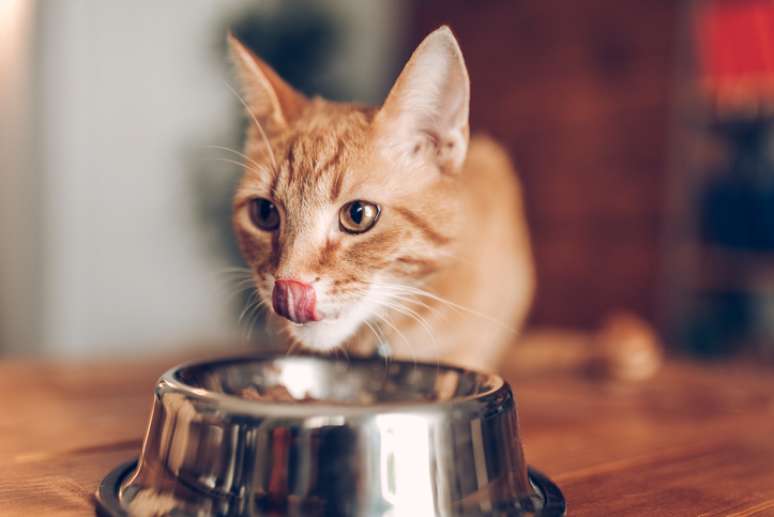Check out the list of 10 foods you should avoid offering to your cat
As good pet parents, it’s virtually inevitable that you won’t treat your pet differently. We always try to please our pets and food is a great way to keep them happy. But did you know that not all foods can be fed to cats?
To protect your feline friends, Petz has compiled a list of ten foods that are prohibited for cats! We will share with you now:
Chocolate
It is common knowledge that dogs should not eat chocolate. Does the same rule apply to felines too? Yes, this food is included in the list of foods harmful to cats.
Chocolate is considered one of the most harmful treats for cats! Its consumption can cause vomiting, heart problems, seizures and even lead to death. Therefore, it is advisable to keep any such treats out of reach of your furry friend.
Grape
How can this natural food be harmful to cats? Grapes are among the dangerous foods for felines, as they can damage the kidneys and cause renal failure, resulting in the death of the animal. This also applies to raisins.
Garlic and onion
The favorite condiments of Brazilian cuisine are forbidden to felines. In the case of garlic and onions, the danger lies in their ability to attack red blood cells, causing anemia.
Furthermore, these condiments can attack the stomach, causing problems such as gastritis. It is important to underline that products that contain onion or garlic in the preparation, such as meat or rice, are also not allowed.
Tuna, sardines and canned fish
Despite felines’ love of fish, any processed product can be harmful to pets. This is due to the high concentration of sodium present in these foods, as well as the fact that many of them are seasoned, which is harmful to the cat’s body.
Raw egg
Consuming a raw egg may not be appealing to us humans. However, some pets love to lick eggshells found in the garbage.
Despite this, this item also appears on the list of prohibited foods for cats. Consuming raw eggs can reduce felines’ ability to absorb vitamin B, which is essential for their bodies.
Sugar
Cats are not allowed sugary snacks after meals. Sugar, having no nutritional value, represents an unnecessary risk and can cause problems such as diabetes and overweight in cats, which are carnivores.
Furthermore, studies indicate that cats do not recognize the sweet taste, placing this ingredient on the list of foods prohibited for them.
Coffee
Even if you enjoy coffee early in the morning or late afternoon, it’s crucial to keep this ingredient out of your feline’s diet. In this case it’s not just a question of the drink: even coffee grounds can be harmful to your cat.
The caffeine-containing substance can cause hyperactivity, increased cardiac activity and even seizures in cats. Therefore, make sure to keep this item out of reach of your feline.
Alcohol
While no one would think of inviting pets to consume alcohol, it is possible for cats to come across alcohol bottles thrown into recycling bins or left unattended in other places.
Alcohol consumption is extremely dangerous for cats and can cause liver problems and brain damage. Therefore, include this item in the list of prohibited foods for cats.
Raw meat
Although cats are carnivores, offering raw meat is not as simple as it seems. Like us, pets can also suffer from food poisoning and become contaminated with raw foods.
Since we have no control over how raw meat is stored and preserved, it is safest to avoid its consumption by cats. This is due to the risks of salmonella and parasite contamination.
Milk and its derivatives
The association between cats and milk is so common that it seems inconceivable that this liquid is harmful to cats. However, both milk and cheese, yogurt and other derivatives are among the foods prohibited for cats.
According to Petz, adult cats are lactose intolerant, which can cause diarrhea, vomiting and abdominal pain. So, although it may seem strange, it is advisable to exclude these ingredients from your cat’s diet.
If you still have doubts and want to know if it is possible to include other foods in your pet’s diet, contact a veterinarian, he will be able to help you.
Source: Terra
Ben Stock is a lifestyle journalist and author at Gossipify. He writes about topics such as health, wellness, travel, food and home decor. He provides practical advice and inspiration to improve well-being, keeps readers up to date with latest lifestyle news and trends, known for his engaging writing style, in-depth analysis and unique perspectives.









